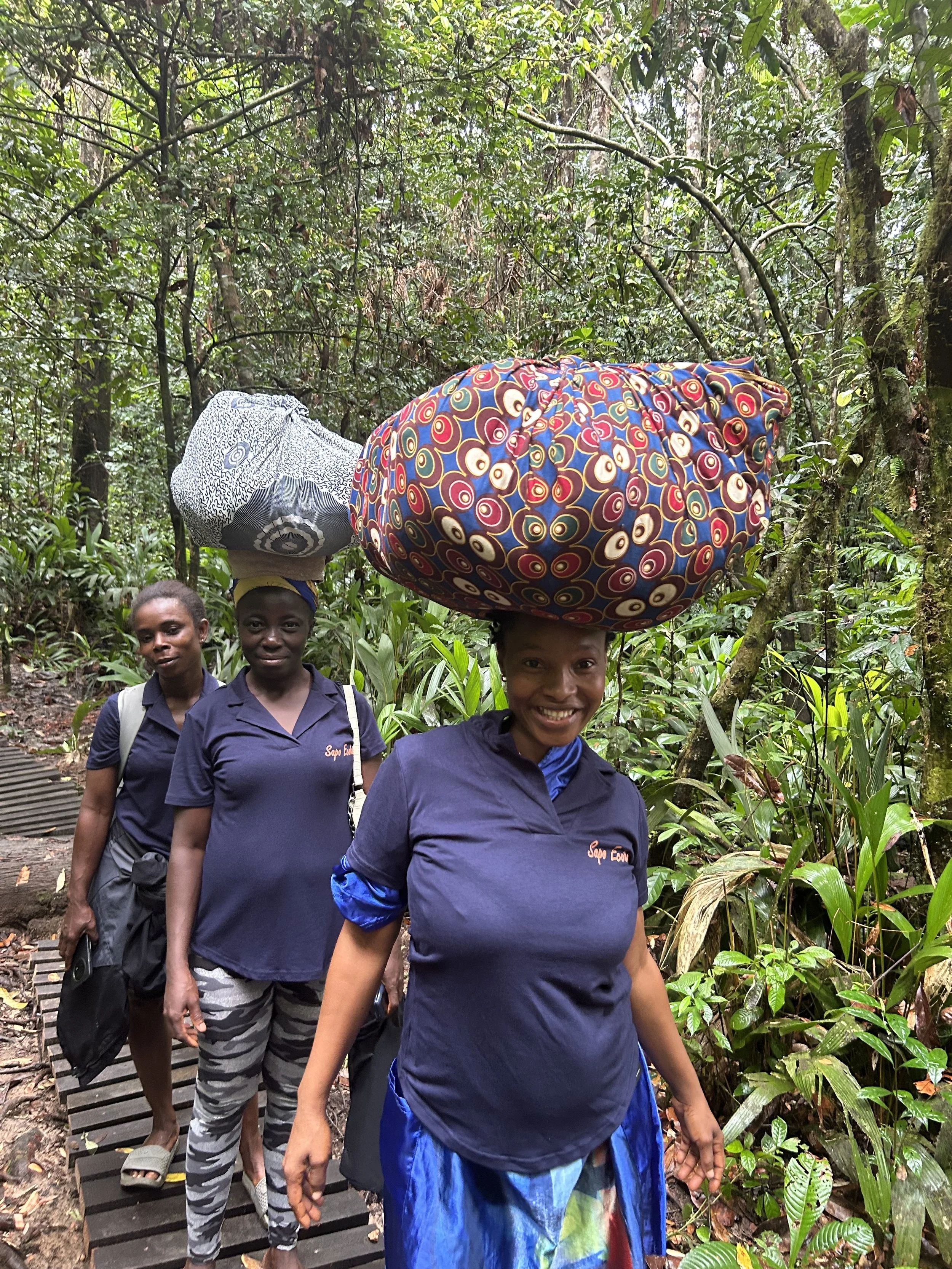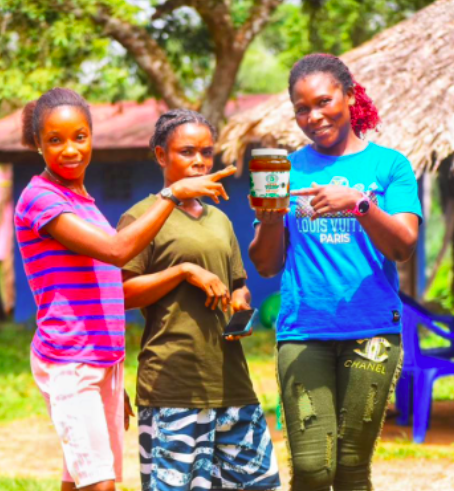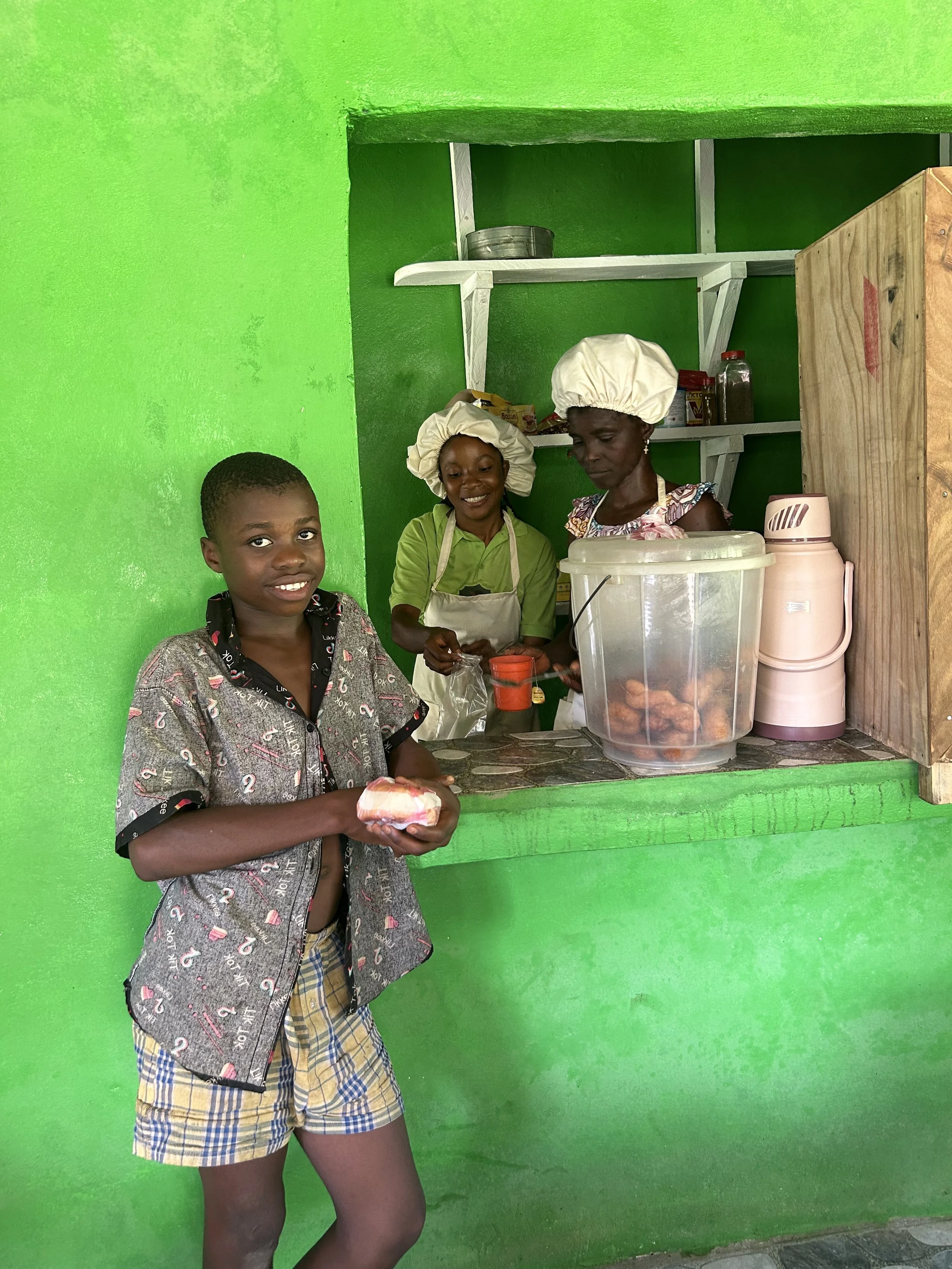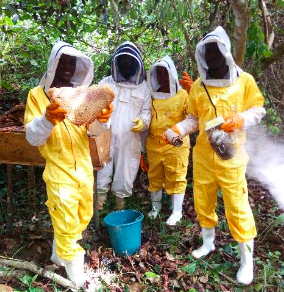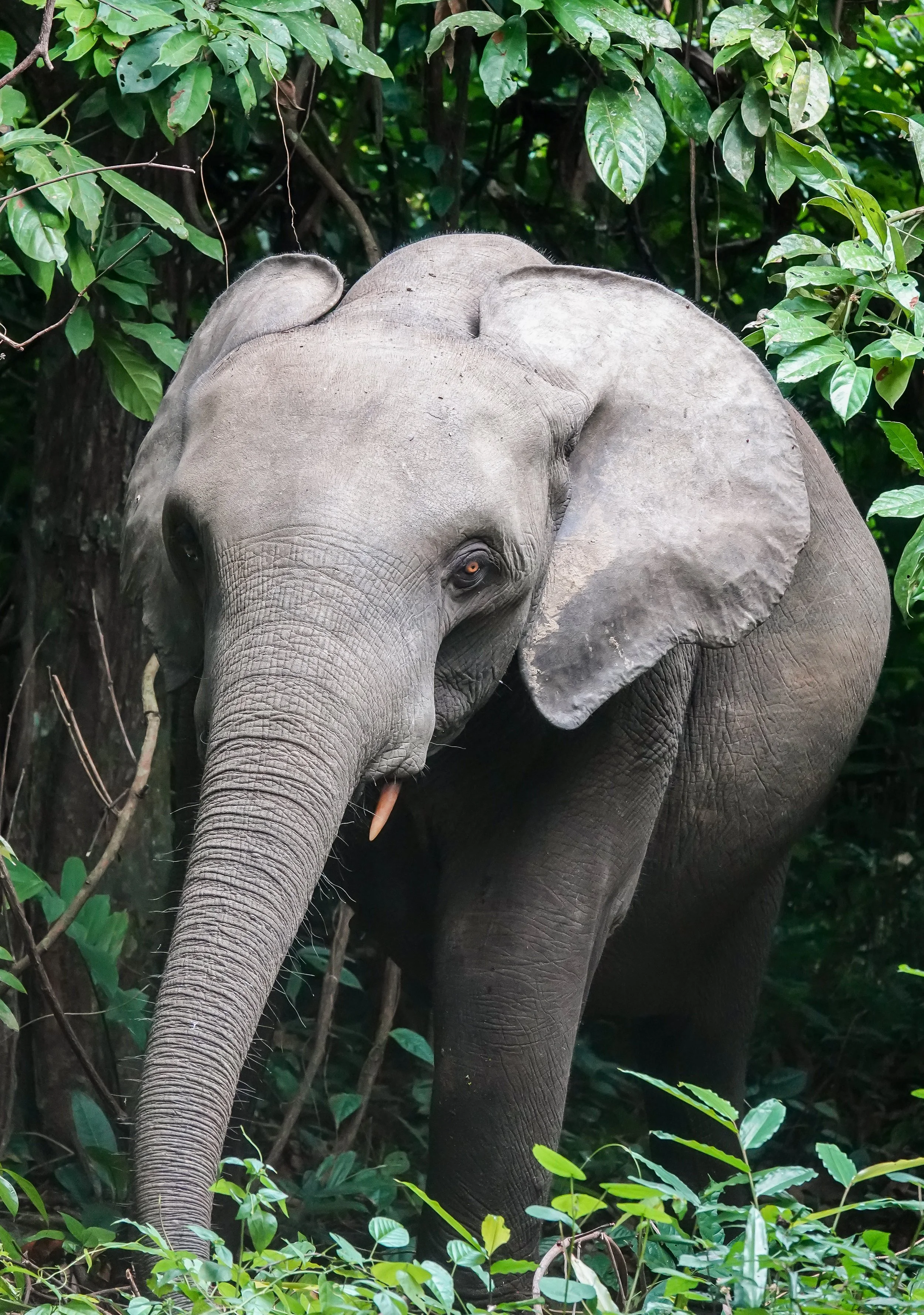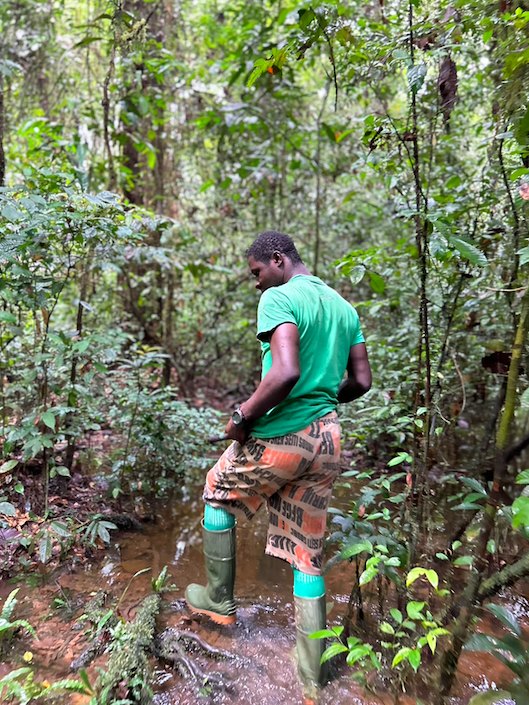OUR ENGAGEMENT
Community
Sapo Ecolodge also supports local entrepreneurship and small businesses. Honey produced locally by the Sapo Women Conservation Enterprise (SWCE) is purchased for tourists use and also sold as a souvenir at the ecolodge. The new bakery in Jalay Town—initiated and funded by Wild Chimpanzee Foundation (WCF) with support from the European Union—now provides fresh bread to the ecolodge and surrounded communities and empowers women through ongoing training. The Sapo Ecolodge team is committed to continuing capacity-building in farming, chicken breeding, and other activities to enable local communities to supply the ecolodge with fresh and locally sourced food whenever possible.
Income generated by the ecolodge is also reinvested directly into improving life in the six villages surrounding Sapo, through infrastructure projects such as hand pumps, school renovations, palava huts, solar panels, and more.
Sapo Ecolodge could not exist without the enthusiasm of the local communities to develop ecotourism in the Sapo area. Above all, Sapo Ecolodge is a project by and for the community, in particular the local women, designed to generate income while supporting the conservation of the rainforest.
Not only does it provide jobs to community members, but it also trains and empowers people from six isolated forest communities surrounding the park, in fields such as hospitality, tourist guiding, cooking, biomonitoring, and conservation. Empowering community members is a key commitment made by the Wild Chimpanzee Foundation.
Today, more than 40 people receive a monthly salary from the ecotourism activities in Sapo, and all income generated by the Sapo Ecolodge goes directly back to the rural communities.
Women play a central role in the ecolodge’s success through a strong partnership with the Sapo Women Conservation Enterprise, which promotes female leadership and entrepreneurship in conservation and tourism.
Conservation
Liberia is home to about 42% of the global Upper Guinea Forest biodiversity hotspot. Within this vital ecosystem, Sapo National Park serves as a sanctuary for wildlife, including highly threatened species such as the critically endangered West African chimpanzees and forest elephants, endangered pygmy hippos, Jentink’s duikers, western red colobus, Diana monkeys, giant pangolins, vulnerable zebra duikers and leopards as well as several endemic bird species such as the Gola Malimbe and the white-necked Rockfowl. The park covers over 1,800 square kilometers of tropical rainforest.
While legal and illegal mining and logging continue to threaten these fragile ecosystems, Sapo Ecolodge offers a sustainable alternative — promoting conservation through responsible tourism. Ecotourism is currently the only income-generating activity in Liberia that supports both local communities and helps preserve the forest in the long term.
Since August 2023, Forestry Development Authority (FDA) and Wild Chimpanzee Foundation (WCF) have supported 22 community members including 14 women to conduct regular patrols across the 250 km² ecotourism zone of Sapo National Park. Using the Spatial Monitoring and Reporting Tool (SMART), they are collecting wildlife and human activity data, as well as information on tourism attractions. Their presence helps strengthen protection in the tourism area.
The data collected shows that the ecotourism zone is currently the best protected area in and around the park with more wildlife sightings and fewer signs of illegal activities such as poaching and illegal mining. This information also guides the FDA in carrying out more targeted law-enforcement operations. Their work is complementary to the patrols conducted by 60 other community ecoguards and auxiliaries who work outside the tourism zone.
Through ecotourism activities, tourist guides and community ecoguards maintain a daily presence in the forest, helping protect wildlife and prevent illegal intrusion. At the same time, local communities benefit economically, motivating them to become active stewards of their natural heritage. In particular, the women on the team have become true drivers of the local economy supporting education, community infrastructure and family businesses.

